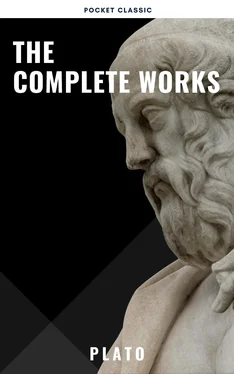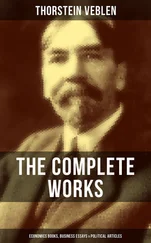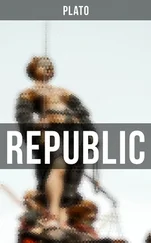‘Who love and APPROVE every one VOLUNTARILY, who does no evil:’
and that the stop should be put after ‘voluntarily’); ‘but there are some whom I involuntarily praise and love. And you, Pittacus, I would never have blamed, if you had spoken what was moderately good and true; but I do blame you because, putting on the appearance of truth, you are speaking falsely about the highest matters.’—And this, I said, Prodicus and Protagoras, I take to be the meaning of Simonides in this poem.
Hippias said: I think, Socrates, that you have given a very good explanation of the poem; but I have also an excellent interpretation of my own which I will propound to you, if you will allow me.
Nay, Hippias, said Alcibiades; not now, but at some other time. At present we must abide by the compact which was made between Socrates and Protagoras, to the effect that as long as Protagoras is willing to ask, Socrates should answer; or that if he would rather answer, then that Socrates should ask.
I said: I wish Protagoras either to ask or answer as he is inclined; but I would rather have done with poems and odes, if he does not object, and come back to the question about which I was asking you at first, Protagoras, and by your help make an end of that. The talk about the poets seems to me like a commonplace entertainment to which a vulgar company have recourse; who, because they are not able to converse or amuse one another, while they are drinking, with the sound of their own voices and conversation, by reason of their stupidity, raise the price of flute-girls in the market, hiring for a great sum the voice of a flute instead of their own breath, to be the medium of intercourse among them: but where the company are real gentlemen and men of education, you will see no flute-girls, nor dancing- girls, nor harp-girls; and they have no nonsense or games, but are contented with one another’s conversation, of which their own voices are the medium, and which they carry on by turns and in an orderly manner, even though they are very liberal in their potations. And a company like this of ours, and men such as we profess to be, do not require the help of another’s voice, or of the poets whom you cannot interrogate about the meaning of what they are saying; people who cite them declaring, some that the poet has one meaning, and others that he has another, and the point which is in dispute can never be decided. This sort of entertainment they decline, and prefer to talk with one another, and put one another to the proof in conversation. And these are the models which I desire that you and I should imitate. Leaving the poets, and keeping to ourselves, let us try the mettle of one another and make proof of the truth in conversation. If you have a mind to ask, I am ready to answer; or if you would rather, do you answer, and give me the opportunity of resuming and completing our unfinished argument.
I made these and some similar observations; but Protagoras would not distinctly say which he would do. Thereupon Alcibiades turned to Callias, and said:—Do you think, Callias, that Protagoras is fair in refusing to say whether he will or will not answer? for I certainly think that he is unfair; he ought either to proceed with the argument, or distinctly refuse to proceed, that we may know his intention; and then Socrates will be able to discourse with some one else, and the rest of the company will be free to talk with one another.
I think that Protagoras was really made ashamed by these words of Alcibiades, and when the prayers of Callias and the company were superadded, he was at last induced to argue, and said that I might ask and he would answer.
So I said: Do not imagine, Protagoras, that I have any other interest in asking questions of you but that of clearing up my own difficulties. For I think that Homer was very right in saying that
‘When two go together, one sees before the other (Il.),’
for all men who have a companion are readier in deed, word, or thought; but if a man
‘Sees a thing when he is alone,’
he goes about straightway seeking until he finds some one to whom he may show his discoveries, and who may confirm him in them. And I would rather hold discourse with you than with any one, because I think that no man has a better understanding of most things which a good man may be expected to understand, and in particular of virtue. For who is there, but you?—who not only claim to be a good man and a gentleman, for many are this, and yet have not the power of making others good—whereas you are not only good yourself, but also the cause of goodness in others. Moreover such confidence have you in yourself, that although other Sophists conceal their profession, you proclaim in the face of Hellas that you are a Sophist or teacher of virtue and education, and are the first who demanded pay in return. How then can I do otherwise than invite you to the examination of these subjects, and ask questions and consult with you? I must, indeed. And I should like once more to have my memory refreshed by you about the questions which I was asking you at first, and also to have your help in considering them. If I am not mistaken the question was this: Are wisdom and temperance and courage and justice and holiness five names of the same thing? or has each of the names a separate underlying essence and corresponding thing having a peculiar function, no one of them being like any other of them? And you replied that the five names were not the names of the same thing, but that each of them had a separate object, and that all these objects were parts of virtue, not in the same way that the parts of gold are like each other and the whole of which they are parts, but as the parts of the face are unlike the whole of which they are parts and one another, and have each of them a distinct function. I should like to know whether this is still your opinion; or if not, I will ask you to define your meaning, and I shall not take you to task if you now make a different statement. For I dare say that you may have said what you did only in order to make trial of me.
I answer, Socrates, he said, that all these qualities are parts of virtue, and that four out of the five are to some extent similar, and that the fifth of them, which is courage, is very different from the other four, as I prove in this way: You may observe that many men are utterly unrighteous, unholy, intemperate, ignorant, who are nevertheless remarkable for their courage.
Stop, I said; I should like to think about that. When you speak of brave men, do you mean the confident, or another sort of nature?
Yes, he said; I mean the impetuous, ready to go at that which others are afraid to approach.
In the next place, you would affirm virtue to be a good thing, of which good thing you assert yourself to be a teacher.
Yes, he said; I should say the best of all things, if I am in my right mind.
And is it partly good and partly bad, I said, or wholly good?
Wholly good, and in the highest degree.
Tell me then; who are they who have confidence when diving into a well?
I should say, the divers.
And the reason of this is that they have knowledge?
Yes, that is the reason.
And who have confidence when fighting on horseback—the skilled horseman or the unskilled?
The skilled.
And who when fighting with light shields—the peltasts or the nonpeltasts?
The peltasts. And that is true of all other things, he said, if that is your point: those who have knowledge are more confident than those who have no knowledge, and they are more confident after they have learned than before.
And have you not seen persons utterly ignorant, I said, of these things, and yet confident about them?
Yes, he said, I have seen such persons far too confident.
And are not these confident persons also courageous?
Читать дальше












